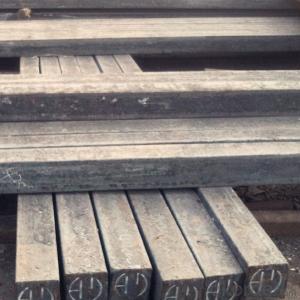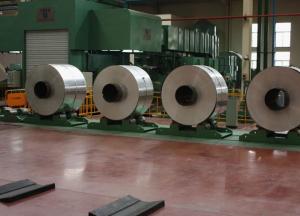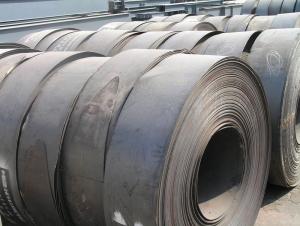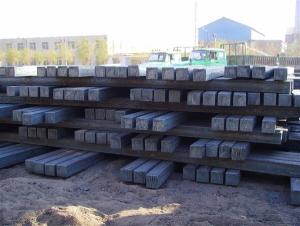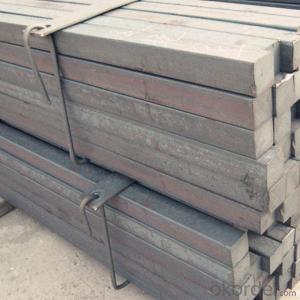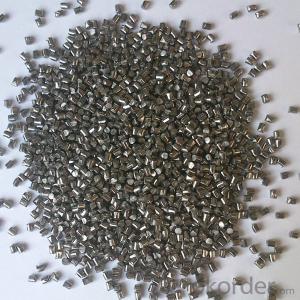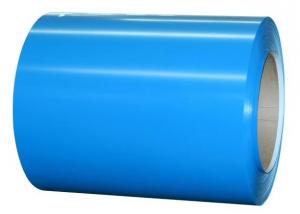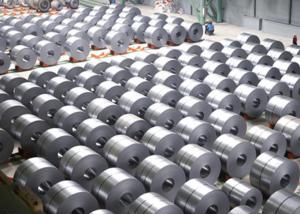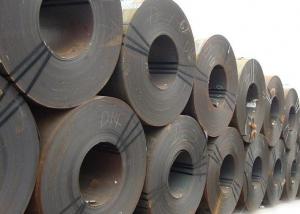Hot Sale Q235 130*130 Steel Square Billet 3sp China
- Loading Port:
- China main port
- Payment Terms:
- TT OR LC
- Min Order Qty:
- 20 m.t.
- Supply Capability:
- 10000 m.t./month
OKorder Service Pledge
OKorder Financial Service
You Might Also Like
Item specifice
Specifications
1.Grade: 3SP, 5SP, Q195, Q235, Q195, Q275
2.Terms of payment: TT or L/C at sight
3.Size: 60*60mm-150*150mm
4.Length: 5.8~12m
Product Description
Type | Steel billet |
Standard Grade | a. 3SP/PS |
b. Q235 | |
c. 5SP d. Q275 | |
Size | 120mm x 120mm-150mm x 150mm etc. as per customers' requirement |
Length | 12m as standard |
Application | Carbon structural steel, Alloy steel, Gear steel, etc. |
Packing | standard export packing, or as per customers' requirement |
Quality | First quality |
Delivery time | Right now after the deposit. |
Others | 1. our products conform to all the standards |
2. we can offer special specification products as per our customers | |
3. we can offer the original mill test certificate and original production |
Chemical composition:
| Standard | C(%) | Mn(%) | S(%) | P(%) | Si(%) |
| Q195 | ≤0.12 | ≤0.50 | ≤0.040 | ≤0.035 | ≤0.30 |
| Q235 | ≤0.20 | ≤1.40 | ≤0.045 | ≤0.045 | ≤0.35 |
| Q275 | ≤0.22 | ≤1.50 | ≤0.045 | ≤0.045 | ≤0.35 |
| 20MnSi | 0.17-0.25 | 1.2-1.6 | ≤ 0.050 | ≤ 0.050 | 0.40-0.80 |
| 3SP | 0.14-0.22 | 0.40-0.85 | ≤ 0.050 | ≤ 0.040 | 0.05-0.15 |
| 5SP | 0.28-0.37 | 0.50-1.00 | ≤ 0.050 | ≤ 0.040 | 0.15-0.30 |
Other Products We Do
l hot rolled coil/plate
l cold rolled coil/plate
l galvanized \ galvalume coil
l PPGI/PPGL
l Corrugated sheet (roof sheet, wall sheet, decking sheet )
l steel pipes ( galvanized, seamless, welded pipe )
l profiled bars (H beam/ I beam/ Angle/ Channel/)
l steel structure warehouse
l steel products processing
l hot dip galvanized brackets
l round irrigation equipment
l field master linear irrigation equipment
l side roll sprinkler
l reel sprinkling irrigation equipment
l sprinkling irrigation machinery
l fixed and transportable sprinkler
l drip irrigation micro-spray series
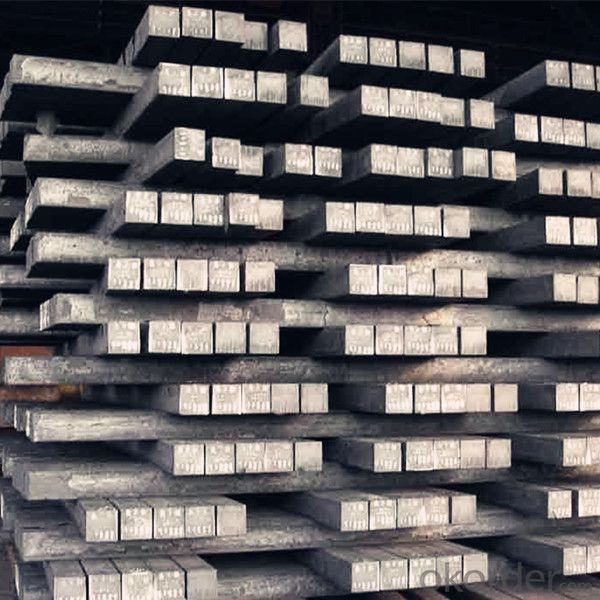
- Q:How is steel rebar welded for reinforcement in concrete structures?
- Steel rebar is welded for reinforcement in concrete structures using a process called "rebar welding." It involves heating the ends of the rebar using an electric arc, creating a molten pool. The molten ends of the rebar are then pressed together, allowing them to fuse and form a strong and continuous bond. This welding technique ensures that the rebar maintains its integrity and provides the necessary reinforcement for the concrete structure.
- Q:What are the main properties of steel?
- The main properties of steel include high strength, durability, and excellent tensile and compressive strength. Steel also has a high melting point, good thermal conductivity, and is resistant to corrosion and rusting. It is a versatile material that can be easily formed and shaped, making it suitable for a wide range of applications in industries such as construction, automotive, and manufacturing.
- Q:What are the applications of steel forgings in the mining industry?
- Steel forgings have various applications in the mining industry, including the production of heavy machinery and equipment, such as crushers, conveyors, and drilling tools. These forgings provide high strength and durability, ensuring reliable performance in harsh mining environments. Additionally, steel forgings are used in the construction of mine shafts and tunnels, as well as in the manufacturing of wear-resistant components for mining machinery, enhancing their longevity and reducing maintenance costs.
- Q:How is steel used in the production of agricultural machinery?
- Steel is commonly used in the production of agricultural machinery due to its strength, durability, and versatility. It is used to construct various components such as frames, chassis, and implements, ensuring the equipment can withstand the demands of farming operations. Steel's robust nature allows agricultural machinery to handle heavy workloads, endure harsh environments, and provide long-lasting performance, making it an ideal material for the industry.
- Q:What are the different types of steel rails and their applications in railways?
- There are several types of steel rails used in railways, including standard rails, heavy rails, and crane rails. Standard rails are commonly used in railway tracks and have a specific profile designed to provide stability and support to trains. They are typically used in mainline tracks and are suitable for high-speed trains. Heavy rails are similar to standard rails but have a higher weight per meter, making them more durable and capable of withstanding heavier loads. These rails are commonly used in areas with heavy traffic or where freight trains operate. Crane rails, as the name suggests, are designed specifically for use in crane tracks. They are capable of supporting the weight of cranes and other heavy equipment, making them ideal for industrial applications. Each type of steel rail has its own specific applications based on the requirements of the railway system, such as the level of traffic, types of trains, and the weight they need to support.
- Q:How is steel forgings heat-treated for improved mechanical properties?
- Steel forgings are heat-treated through a process called quenching and tempering to enhance their mechanical properties. Initially, the steel is heated to a high temperature and then rapidly cooled, or quenched, in a liquid medium such as oil or water. This rapid cooling helps to achieve high hardness and strength in the material. Following quenching, the steel is tempered by reheating it to a lower temperature to relieve internal stresses and improve toughness while maintaining a desirable level of hardness. This heat treatment process is crucial in optimizing the mechanical properties of steel forgings, making them more durable and suitable for various applications.
- Q:How is steel sheet metal bent for HVAC ductwork?
- Steel sheet metal is bent for HVAC ductwork using a variety of methods, including press brakes, rollers, and hand tools. Press brakes are the most common method, where the sheet metal is placed between a punch and die, and hydraulic or mechanical force is applied to bend it to the desired angle. Rollers are used for more complex bends, where the sheet metal is passed through a series of rollers to gradually form the desired shape. Hand tools such as hammers and mallets may also be used for smaller, intricate bends.
- Q:How is steel pipe coated for underground gas pipelines?
- Steel pipe for underground gas pipelines is coated using a process called fusion bonded epoxy coating. This involves preheating the pipe, applying an epoxy powder to it, and then heating it again to create a strong bond. This coating provides corrosion protection and helps to ensure the longevity and safety of the pipeline.
- Q:How are steel products different from iron products?
- Steel products are different from iron products primarily because steel is an alloy made by combining iron with carbon, while iron products are made solely from iron. This alloying process gives steel higher strength, durability, and versatility compared to iron products.
- Q:What are the safety precautions to be taken while handling steel products?
- When handling steel products, it is important to take several safety precautions. Firstly, workers should wear appropriate personal protective equipment (PPE) such as gloves, safety goggles, and steel-toed boots to protect themselves from cuts, burns, and other potential injuries. It is also essential to use proper lifting techniques and equipment to avoid strains and other musculoskeletal injuries. Additionally, workers should be trained to handle steel products safely, including being aware of sharp edges, hot surfaces, and heavy weights. Regular inspections of equipment and work areas should be conducted to identify and address any potential hazards. Lastly, following proper storage and handling procedures, including securing steel products to prevent falling or shifting, can help prevent accidents and injuries.
1. Manufacturer Overview |
|
|---|---|
| Location | |
| Year Established | |
| Annual Output Value | |
| Main Markets | |
| Company Certifications | |
2. Manufacturer Certificates |
|
|---|---|
| a) Certification Name | |
| Range | |
| Reference | |
| Validity Period | |
3. Manufacturer Capability |
|
|---|---|
| a)Trade Capacity | |
| Nearest Port | |
| Export Percentage | |
| No.of Employees in Trade Department | |
| Language Spoken: | |
| b)Factory Information | |
| Factory Size: | |
| No. of Production Lines | |
| Contract Manufacturing | |
| Product Price Range | |
Send your message to us
Hot Sale Q235 130*130 Steel Square Billet 3sp China
- Loading Port:
- China main port
- Payment Terms:
- TT OR LC
- Min Order Qty:
- 20 m.t.
- Supply Capability:
- 10000 m.t./month
OKorder Service Pledge
OKorder Financial Service
Similar products
New products
Hot products
Hot Searches
Related keywords

